
The Shield of Honor
By Storybird

29 Aug, 2023
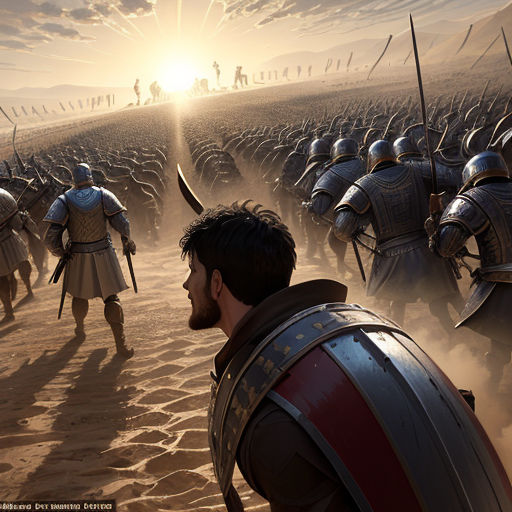
The Roman sun was unforgiving, casting long shadows on the battle-worn faces of the legionaries. Among them, a man stood out, a beacon of strength and honor. His name was Lucius.

Lucius was legendary among his comrades. He fought his enemies with a fiery intensity, but off the battlefield, he was known for his kindness and unwavering loyalty.

It was through the embers of camaraderie that Lucius met his closest confidant, Gaius. Gaius was a seasoned veteran, a wise and respected centurion.
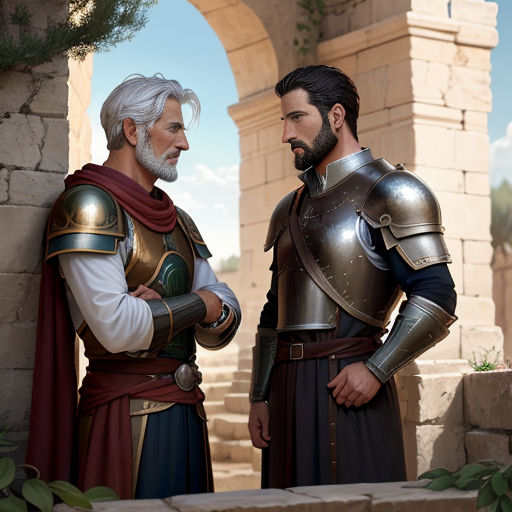
In quiet moments, Gaius and Lucius shared stories of home and dreams of the future. Gaius saw in Lucius the promise of a great leader, one Rome would admire.

One day, a messenger arrived in camp, bearing news that would send ripples through the ranks. The emperor was dead, poisoned, and the Senate suspected treason.
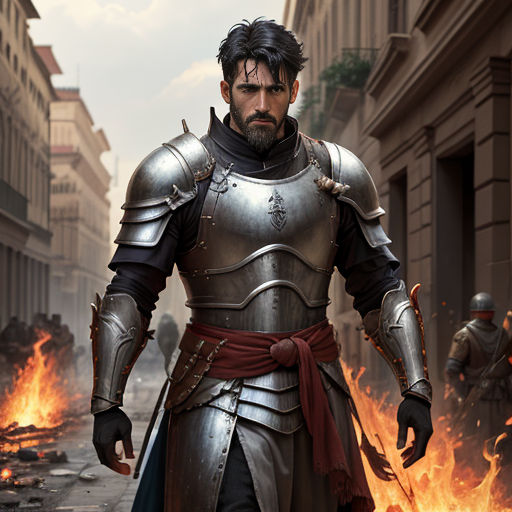
Chaos ensued. The Senate ordered a brutal purge of suspected traitors. Innocent men were hunted down, their lives destroyed on mere suspicion. Lucius was dismayed.
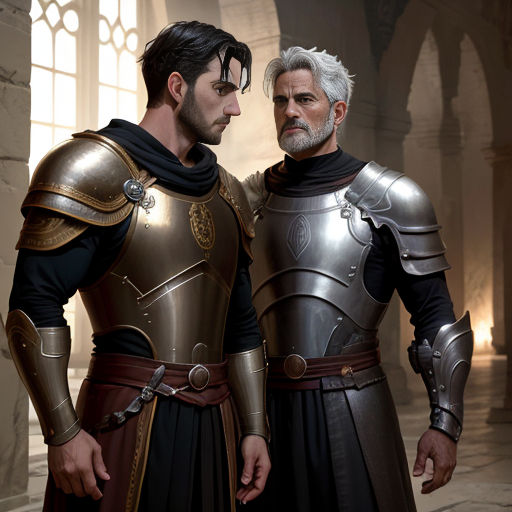
But Gaius shared a secret with Lucius that chilled his veins - he had been commanded to carry out some of these purges. Gaius was lost, torn between duty and morality.
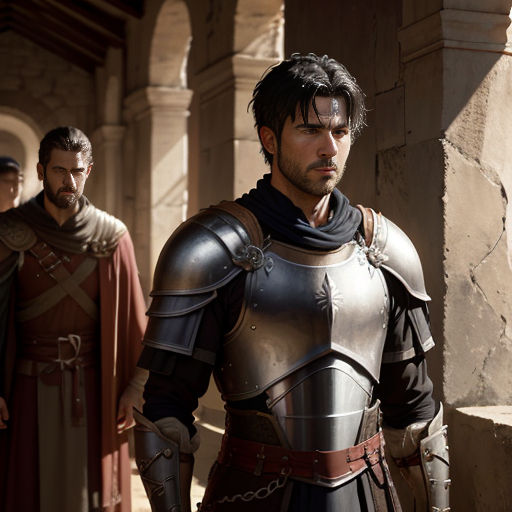
Lucius, shocked, advised Gaius to resist. He believed that honor was worth more than blind obedience. He urged Gaius to stand against this injustice.

Gaius was torn but finally, he agreed. They began to question their orders discreetly, gathering evidence to prove the Senate's tyranny.

The stakes got higher as they came closer to the truth. The Senate, paranoid of betrayal, raised a manhunt for suspected traitors. The hunt was vicious and unsparing.

Their clandestine activities were discovered. Gaius was arrested, accused of treason, and taken away. Lucius could only watch helplessly, his heart filled with dread.

Fueled by desperation, Lucius made a daring plan. He would infiltrate the Senate, expose their tyranny, and free Gaius. It was a risky venture, but his only hope.

Lucius' mission led him through the labyrinth of Rome's political underbelly. He faced both physical and moral trials, but his conviction remained steadfast.

He gathered evidence, revealing the Senate's manipulation, the fabricated charges, and the innocent lives destroyed. His findings painted a grim picture of corruption and deceit.
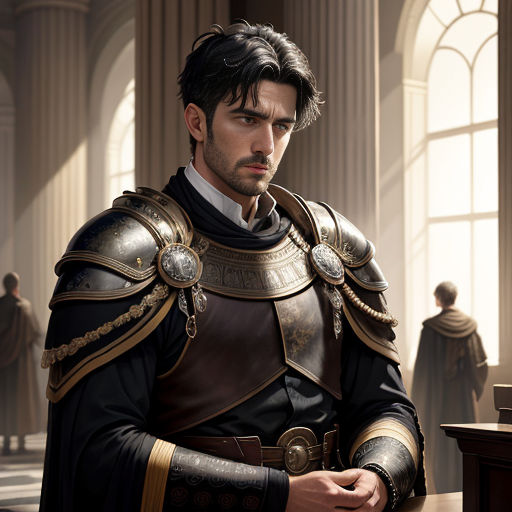
The day of his revelation before the Senate came. Lucius, with a heavy heart, presented his evidence. He accused them of betraying Rome and its people.

The Senate, faced with undeniable evidence, was forced to act. Gaius was released, the innocents were pardoned, and the corrupt senators were arrested. But the struggle was far from over.

Lucius and Gaius returned to their legion. They did not gloat about their success, for they knew that Rome was still in danger. The power vacuum was a breeding ground for more corruption.

They worked to rebuild Rome’s lost honor with fairness and justice, always guided by their shared values. Their comrades respected and admired their unwavering dedication.
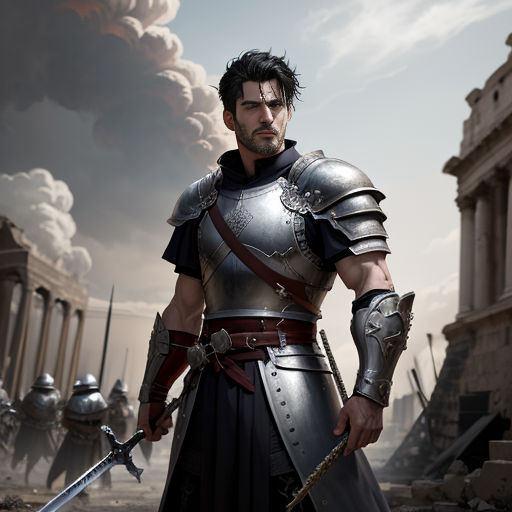
Lucius was offered the position of a consul, but he refused. He chose to remain a legionary, forever fighting for the people of Rome.
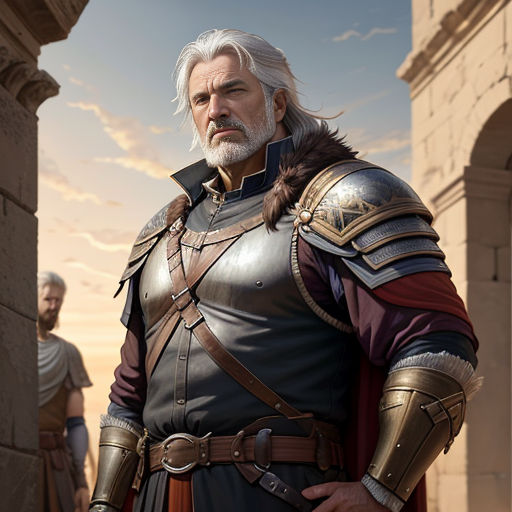
Gaius, on the other hand, accepted a political post. He believed he could do more good within the system, preventing the rise of another corrupt regime.

Their friendship remained as strong as ever. Together, they faced the challenges that came, their shared love for Rome stronger than any external threat.

Over time, the story of their bravery spread through Rome. They became symbols of honor, inspiring others to stand against injustice. Rome was forever changed by their deeds.

And even when they were long gone, their legacy lived on. Their story was told and retold, inspiring generations to uphold their ideals of justice and honor.

Lucius and Gaius, the legionary and the consul. Two men from different walks of life, bound by a shared love for their empire and an undying sense of honor.

From their story, we learn that true honor is not about titles or glory, it’s about doing what's right, even when the world is against you. It’s about choosing justice, over fear.

They taught us that a Roman's true shield is not his armor, but his honor. And with honor, one can stand against any threat, no matter how powerful.

So, remember Lucius, a simple legionary who chose to act against injustice. Remember Gaius, who used his wisdom and position to prevent the resurgence of a corrupt regime.
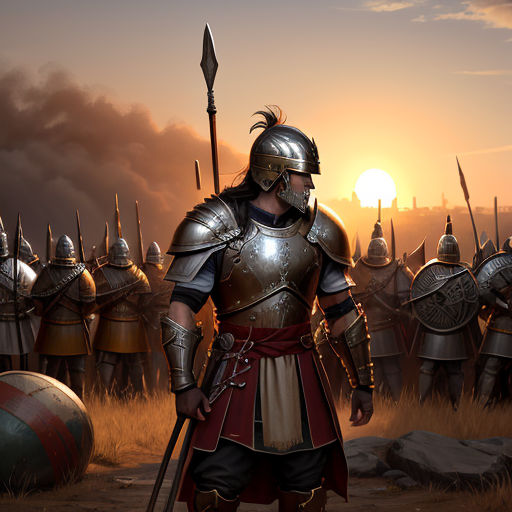
Let their legacy inspire you to keep your own shield of honor unscathed. For it is in our darkest hours that we must stand for what we believe, for that is true bravery.
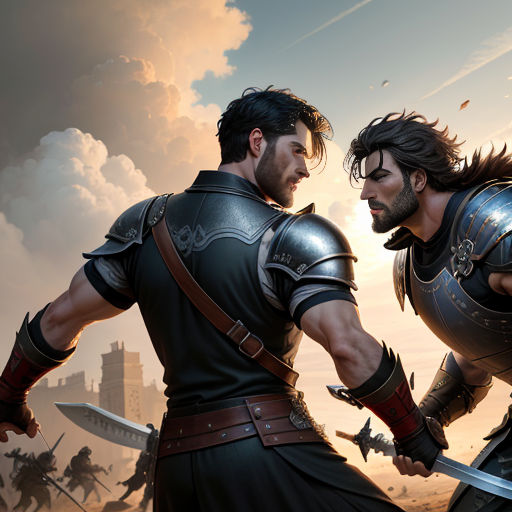
And no matter the trials we face, may we always remember the two heroes of Rome – their courage, their resolve, and most importantly, their honor.

Our shield of honor is our legacy. The legacy of Lucius and Gaius. It defines who we are and what we stand for. May it forever remain unbroken.

So, as the sun sets on the empire and the shadows of the past recede, we look towards the future, guided by the legacy of Lucius and Gaius – The Shield of Honor.